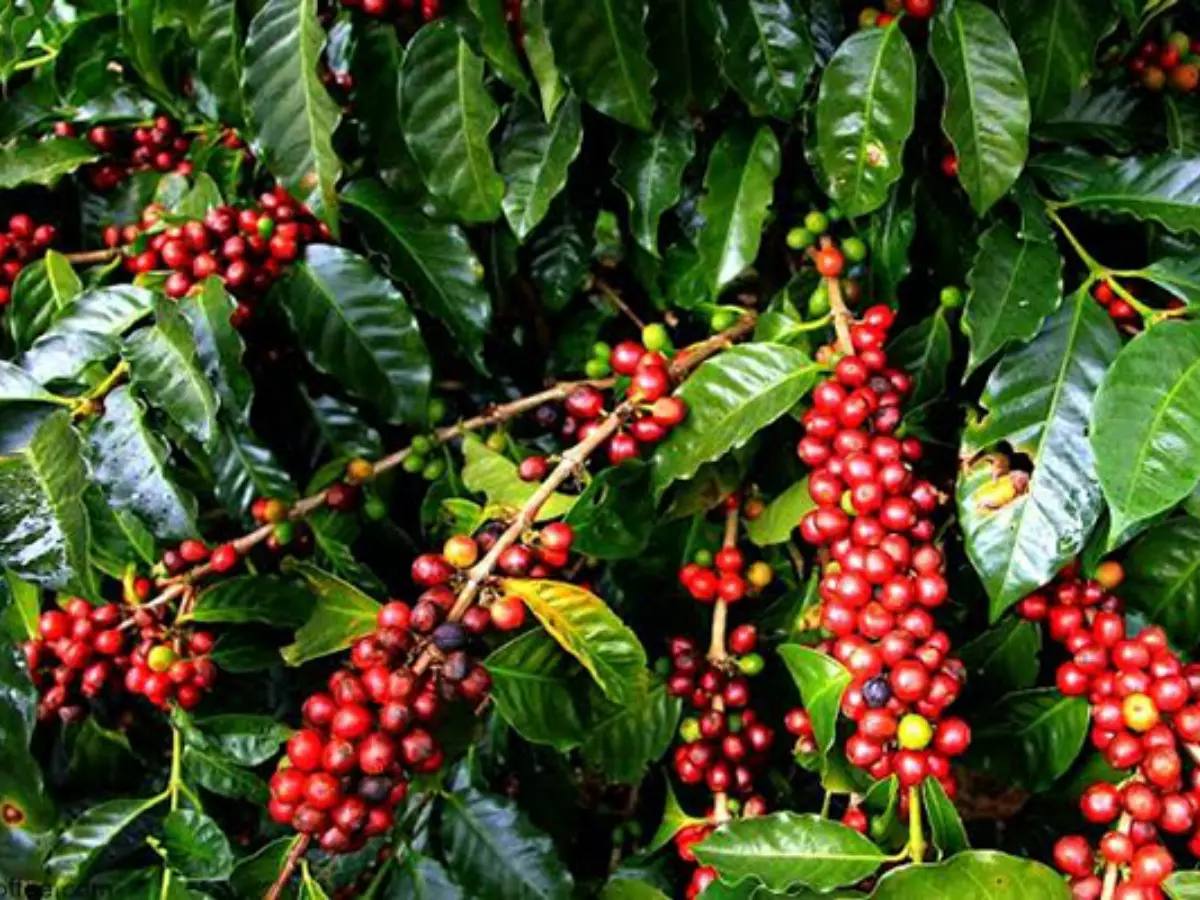How This Naxal-Hit Region Of Chhattisgarh Is Taking A Leap With Coffee Production
The underdeveloped region of the state, which has been on the backseat due to Naxal violence, lack of development and unemployment, is now expected to get a much-needed boost through the coffee production initiative by the Horticulture College in association with the Coffee Board of India.

Chhattisgarh's Naxal- hit district of Bastar is now witnessing a positive transformation as it is set to become a hub for coffee production.
 Representational Image
Representational Image
The underdeveloped region of the state, which has been on the backseat due to Naxal violence, lack of development and unemployment, is now expected to get a much-needed boost through the coffee production initiative by the Horticulture College in association with the Coffee Board of India.
The coffee enterprise run by these bodies simultaneously provides employment opportunities to villagers and plays a significant role in doubling their income.
Experimental plantation in 2017-18
Dr Krishna Pal Singh, a Horticulture Scientist, told ANI that four varieties of Coffee Arabica and one variety of Coffee Robusta were planted on 20 acres on an experimental basis in 2017-18.
"Coffee plantations started in Bastar in 2016 are now emerging as a business model. In 2016, the district administration had initiated a move for proper utilisation of forest lands to the holders of Van Adhikar Patta (Forest Land Deed) at Darbha block and the plantation of coffee was started," said Dr Singh.
 Village Square
Village Square
Darbha, a region with violent past
Darbha is the same place where the biggest Naxal attack virtually wiped-off Congress in Chhattisgarh.
 Representational Image
Representational Image
On May 25, 2013, ultras attacked the convoy of Congress leaders during the party's 'Parivartan Yatra' at Jhiram Valley under Darbha block, killing around 29 people, including the then state Congress chief Nand Kumar Patel, former Leader of Opposition Mahendra Karma, former Union Minister Vidyacharan Shukla and others.
The entire idea of coffee cultivation was shared with the then Collector of Bastar Amit Kataria and impressed by the innovative plan, the district administration granted funds under District Mineral Foundation (DMF), said Dr Singh.
He further elaborated that under this initiative, the plantation of four different varieties of coffee Arabica and a variety of coffee Robusta, was started respectively in 2017 and 2018, while the first production was commenced in 2020.
Aroma of 'Bastar Coffee' spreading across country
Currently, the coffee plantation has been completed in around 100 acres of land and its aroma in the brand name 'Bastar Coffee' is spreading across the country.
First harvesting was done in 2020-21, he said.
Efforts are being made to ensure maximum benefits to farmers of the district through production of coffee and by installing unit for its processing, said the scientist, elaborating that the farmers, who were getting least benefits from the forest land, are now drawing an annual income of Rs 40000-50000 (each farmer).
To promote coffee being cultivated in Bastar, Chhattisgarh Government is setting up Bastar Cafe and this is attracting coffee lovers, he said.
Employment opportunities open up
 Village Square
Village Square
Recalling the employment opportunities available in the area, a resident of village Darbha Basanti Yadav said, "Earlier, we had to go out of the village in search of employment. Now the situation has changed remarkably with the launching of a coffee plantation project and this has provided us employment at the native village itself."
"Earlier, I was earning Rs 1500 per month by working at a shop and now drawing Rs 6000 as monthly income by working at a coffee field," she elaborated.
After an extensive survey and study of climatic, it was learnt that the topography, climatic condition and altitude of the Bastar region are suited for the cultivation of coffee and the project commenced at Darbha in 2016, said Dr Singh.
Earlier, the farmers here were not having employment opportunities but the introduction of coffee projects has created immense job prospects for the locals, he said.
He claimed that by opting for coffee as a crop, the villagers will reap the benefits for around 40 to 80 years.
"With production of coffee, an attempt is being made to change the negative narrative associated with Bastar. The taste of Bastar coffee can be enjoyed by a person sitting in Delhi, who only knows the place as an insurgency-hit region," said Singh.
Marketing through Bastar Cafe outlets
To erase middle-men from this initiative, women self-help groups have been involved in the processing task while marketing is being done by opening outlets of 'Bastar Cafe', said Singh.
 Village Square
Village Square
He said that Bastar Cafes will provide employment to unemployed educated youths.
Darbha has definitely been a very sensitive area of the district and it has always been a challenge for us to link people with the mainstream by ensuring them employment so that they could move ahead towards prosperity, said Bastar Collector Chandan Kumar.
Coffee cultivated here will be the new identity of Bastar and to connect people with its taste as well as aroma, the concept of Bastar Cafe was drafted and 'Bastar Cafe' has been established here, Kumar further said.
"People are liking it very much and definitely in the coming time, there will definitely be a massive demand for the coffee of Bastar in international as well as local markets," he added.
For more on news and current affairs from around the world, please visit Indiatimes News.
